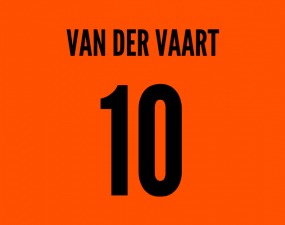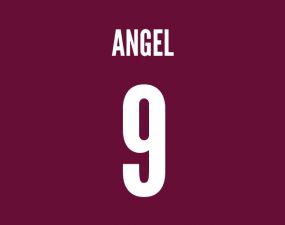Player Profile: Patrik Berger
Date of Birth: 10/11/1973
Height: 1.85 m
Position: Attacking midfielder/winger
National Team: Czech Republic
International caps: 44
International goals: 18
Club Career
There are certain players who can light up a football field one week and then fade into the background the next. Mesut Ozil is the modern day definition of that football player, but he isn’t the first man to excite and frustrate in equal measure. “Why can’t he do this every week?” was most likely a question on the lips of many fans on the Kop in the 1990s/2000s when discussing the enigmatic Patrik Berger.
Possessing an eye for a defence splitting pass that isn’t even visible to 90% of humans and a cannon of a shot, Berger was a football player that you couldn’t keep your eyes off for too long. The site of his flowing locks dancing as he weaved his way in and out of stricken defenders was almost iconic at Anfield between 1996 and 2003. Most of the time. And then there were the injuries.
The talented Czech began his career in his native land, breaking through in 1991 at Slavia Prague despite learning has trade as a youngster with fierce city rivals Sparta. A young Berger may have regretted his decision as a 17-year-old, casting envious glances as his former employers dominate Czech football during the period he spent with Slavia.
But despite a lack of silverware, the young trickster was earning admirers from afar. A tidy return of 26 goals in four seasons meant German giants Borussia Dortmund came calling in 1995, with the legendary Ottmar Hitzfeld securing his services for a fee of £2.75 million.
His impact would be immediate. The Czech midfielder burst onto the scene in Germany with a debut goal minutes after his introduction from the substitute’s bench. And that set the tone for Berger’s time in front of the Yellow Wall with Dortmund going on to clinch the Bundesliga.
Those who thought Berger would be around to build Dortmund’s legacy were sadly mistaken. The Czech Republic’s surprisingly star studded lineup arrived in England at Euro 96 and the tournament proved to be the shop window that many clubs with star assets have come to dread. Karel Poborsky and Pavel Nedved were supposed to be the headline acts but Berger grabbed his opportunity. His performances meant that he was just beginning his English journey at the tournament.
Liverpool pounced to the tune of £3.25 million and made sure Berger never returned to Germany. The Reds were sleeping giants at the time under the confusing dual management of Roy Evans and Gerard Houllier. The duo decided that Berger was one of those who could be trusted to bring the good times back to Anfield.
As he had done in Germany, Berger exploded onto the scene in England, notably scoring twice off the bench in a commanding performance at Leicester City. In fact, the goals he scored that day became a bit of a trademark for Berger. Kasey Keller who was in goal for the Foxes that day felt the full power of Berger’s left foot: “I’ve never seen a ball move so fast in my life. It’s a good job I didn’t get in the way of either shot or I’d have been back in the net with them.”
He soon repeated the feat, notching a brace in a 5-1 demolition of Chelsea at Stamford Bridge. The Stan Collymore era was well and truly over with Berger linking smartly with the likes of Steve McManaman and Robbie Fowler to fire Liverpool towards a league title. As you will no doubt have predicted, “towards” was the closest the Reds got to a league title.
As became typical of Liverpool in the 1990s, it all began to fall apart at Anfield. The departure of Roy Evans put an end to the bizarre double manager scenario and left Houllier in sole charge. While McManaman’s departure was bemoaned by many on Merseyside, Berger saw this as a chance to become central to the team. Chipping in with 9 goals in 41 appearances, Berger was firmly becoming a fan’s favourite.
The 2000/01 season was one that was remembered fondly by Liverpool fans but proved to be a difficult one for Berger on a personal note. A knee ligament injury saw him watch on from the sidelines as Houllier’s Reds powered their way to a cup competition treble. But Berger did make it back in time for the famous FA cup final win over Arsenal and is, perhaps, best remembered at Anfield for the defence splitting pass which set Michael Owen on his way to clinch the cup.
The summit of Berger’s Anfield career also signalled the beginning of the end of his time in a red shirt and he left in 2003 for Portsmouth. He soon came back to haunt Liverpool, scoring the winning goal in their encounter during one of his first appearances for Pompey.
Sadly, the injuries began to stunt Berger’s progress and knee surgery at the start of 2004 meant we barely saw his magic on the football field and this lead to him being released in June 2005.
Aston Villa took a chance on him but he was loaned out to Stoke City after failing to break into the team. Following a fall out with Villa boss Martin O’Neill, Berger returned to the Czech Republic where he scored 8 goals in 31 appearances for Sparta Prague before retiring in 2010.
International Career
As was seemingly common in his career, Berger started quickly when being called up for Czech Republic. Eight goals in his first 12 appearances, one of which helped send the Czech’s to Euro 96, were a good indicator that Berger’s international career would be a good one.
That Euro 96 tournament was arguably the Czech Republic’s golden footballing era and Berger starred alongside Poborsky, Nedved and Vladimir Smicer in a team that shocked everyone. Despite being in and out of the side, Berger will look back on Euro 96 with fondness; his performances earning him that move to Liverpool.
But while the tournament in England would be one Berger enjoyed, he was robbed of hero status by German forward Oliver Bierhoff. Berger’s 14th minute spot kick in the final looked to have propelled his nation to a famous tournament win, only for Bierhoff to break Czech hearts, striking an equaliser with four minutes left before plundering the golden goal to snatch the trophy.
The world was robbed of the Czech’s when they failed to qualify for the World Cup in 1998 in France. Much of this can be attributed to a turbulent qualifying campaign over 1997 and 1998 where Berger himself boycotted the national team for 17 months due to a despite with manager Dusan Uhrin.
The Czech Republic quickly put the World Cup failure to the back of their minds in qualifying for Euro 2000 but Berger’s participation was far from notable. A red card in a qualifier ruled him out of the first two group games, meaning he only featured once in the tournament in a game they’d already been eliminated ahead of.
An international career with so much early promise was ended in 2002 when Berger announced his retirement at the age of 28. Few would have predicted after a stunning start at Euro 96 that he would achieve so little on the world stage.
Where is Patrik Berger now?
Berger’s playing career extended into his 40s in the amateur leagues in the Czech Republic. He is frequently called up to play in masters tournaments with Liverpool and also works for the club as an ambassador.
His talents even extend beyond the football field as he was enlisted by Liverpool to model the club’s clothing in 2017
As well as getting involved in punditry, Berger is also an ambassador for Playon, an organisation that supports ex-professional football players during their retirement.
Did you know? Interesting facts about Patrik Berger
– Berger was only selected for the Euro 96 as his Czech Republic (and future Liverpool) team mate Vladimir Smicer had returned home to get married.
– He fell out with Aston Villa manager Martin O’Neill as he encouraged club captain Gareth Barry to leave and join Liverpool. He was also fined two week’s wages and suspended from the training ground.
– Liverpool legend Steven Gerrard once said that Berger was the best left footed striker of a ball he had ever seen.
– In March 1998, Berger was named as a substitute for Liverpool in a game at Bolton but he refused to sit on the bench, leading him very close to exiting the club for Benfica.




